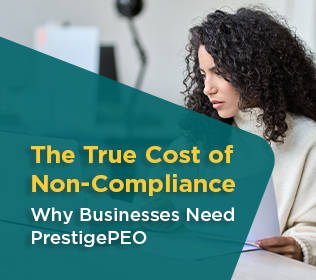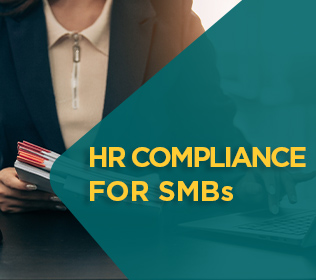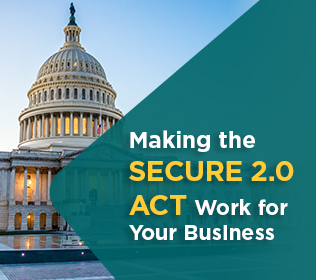
When it comes to managing payroll, it can be confusing to figure out exactly what your company needs. From super sleek web based HR software to payroll processing companies, there’s no shortage of options available to small and mid-size businesses these days.
While there are a number of benefits to outsourcing part or all of your payroll operations, none of these options truly compares to the power of a PEO or “professional employer organization”. A PEO works on behalf of SMBs to fully manage all aspects of payroll – from ensuring each employee is always paid on time, to maintaining all local, state, and federal compliance.
What Are the PEO Tax Implications?
Federal and state governments each have their own highly complex laws regarding taxes, employee benefits, and more. These laws are also subject to frequent changes, making it incredibly difficult for businesses to keep track of compliance on their own. Without the right guidance, SMBs are prone to making costly errors on critical local and federal requirements.
How Does a PEO Help?
By partnering with a PEO, SMBs receive the benefit of an entire team of certified tax and payroll specialists working to ensure compliance and smooth payroll operations. A PEO is more than a payroll processing company – it’s a co-employer, which means the PEO assumes certain responsibilities on behalf of your business and therefore is able to provide much more comprehensive payroll support.
This includes managing payroll for all W2 employees, as well as those paid hourly wages, which are processed differently and have different PEO tax implications. A PEO frees SMBs of the burden of managing all these nuances and seamlessly delivers everything employees will need – like paystubs and W2s. A PEO can also help manage important communications with employees regarding payroll and taxes, or even directly communicate with employees on the company’s behalf.
How Does it Work?
As a co-employer, a PEO goes above and beyond simply processing payroll. It also assumes a number of employer-related responsibilities associated with payroll including issuing paychecks, filing payroll taxes, and managing workers’ compensation. In this kind of partnership, business owners retain control over all strategic business decisions, pay rates, operations, and day-to-day employee operations.
This is especially useful for employers that have employees throughout multiple states, as payroll for those employees is often subject to multiple tax laws. A PEO manages all these nuances and much more on behalf of SMBs, enabling business owners and their employees to focus on their core services.
Why a PEO?
Most payroll companies do just that – they process payroll. In the event that the payroll processing company experiences financial turmoil or completely goes out of business, there would be no protection for your company’s payroll funds, which could put your own business at risk.
A PEO, on the other hand, guarantees that your business is financially protected; but it’s important to also keep in mind that not all PEOs are the same. Only 1% of PEOs in the U.S. maintain all three of the PEO industry’s most stringent certifications, so it’s a good idea to partner with one that can demonstrate this level of financial reliability. These certifications – which are awarded upon successful vetting by the likes of the IRS and the Employer Services Assurance Corporation (ESAC) – ensure a PEO’s financial stability and adherence to a number of rigorous security standards.
Beyond Payroll
In addition to payroll, PEOs also provide reduced rates on premium employee benefits, strategic HR support, and much more. Taken altogether, working with a PEO can add up to significant savings for SMBs over time. It also enables SMBs to provide much more value to their employees and nurture a work environment that encourages productivity, ultimately contributing to greater business growth.
Interested in learning more about how a PEO tax implication can help your business avoid payroll risk? Contact us today.




